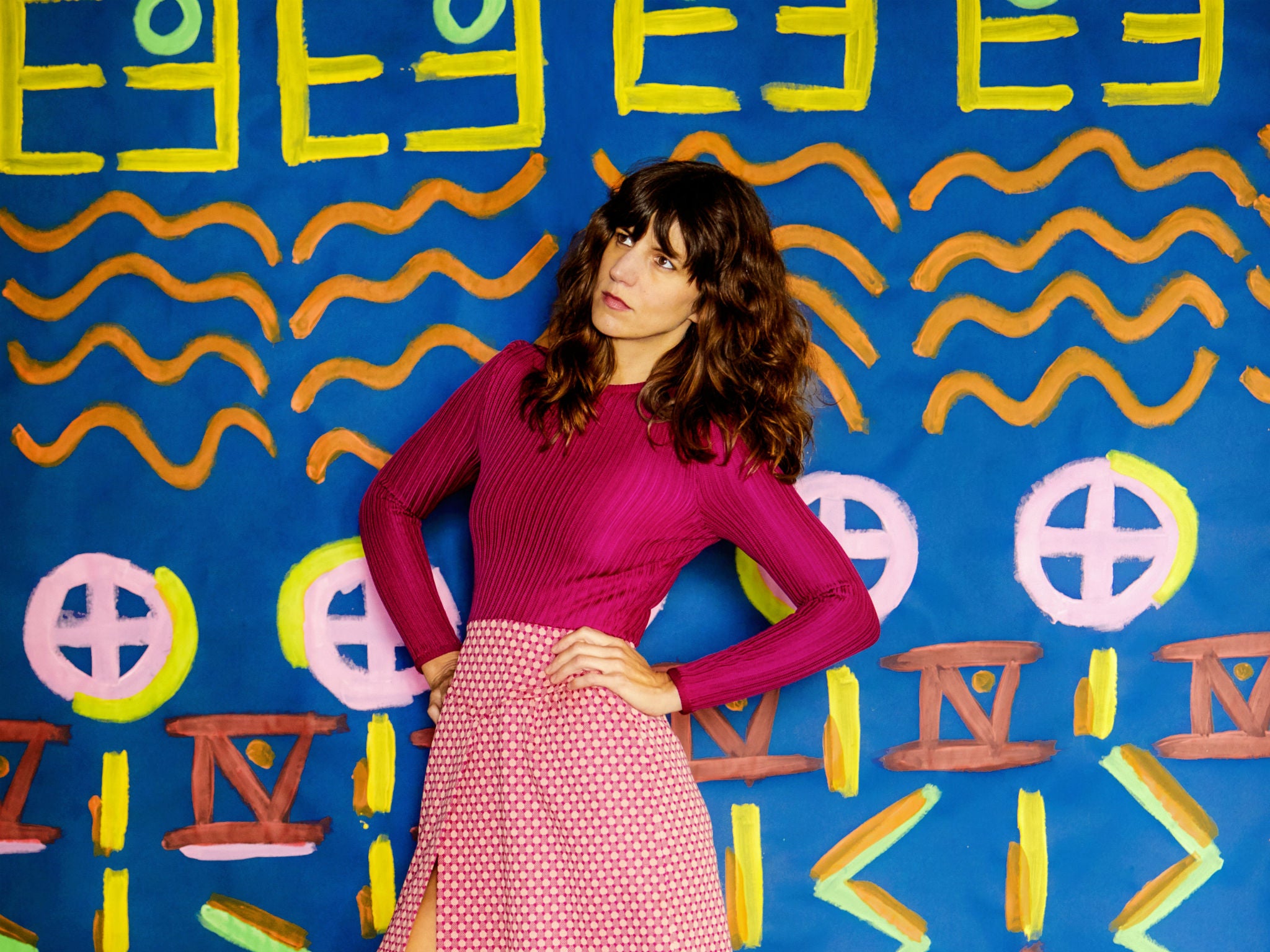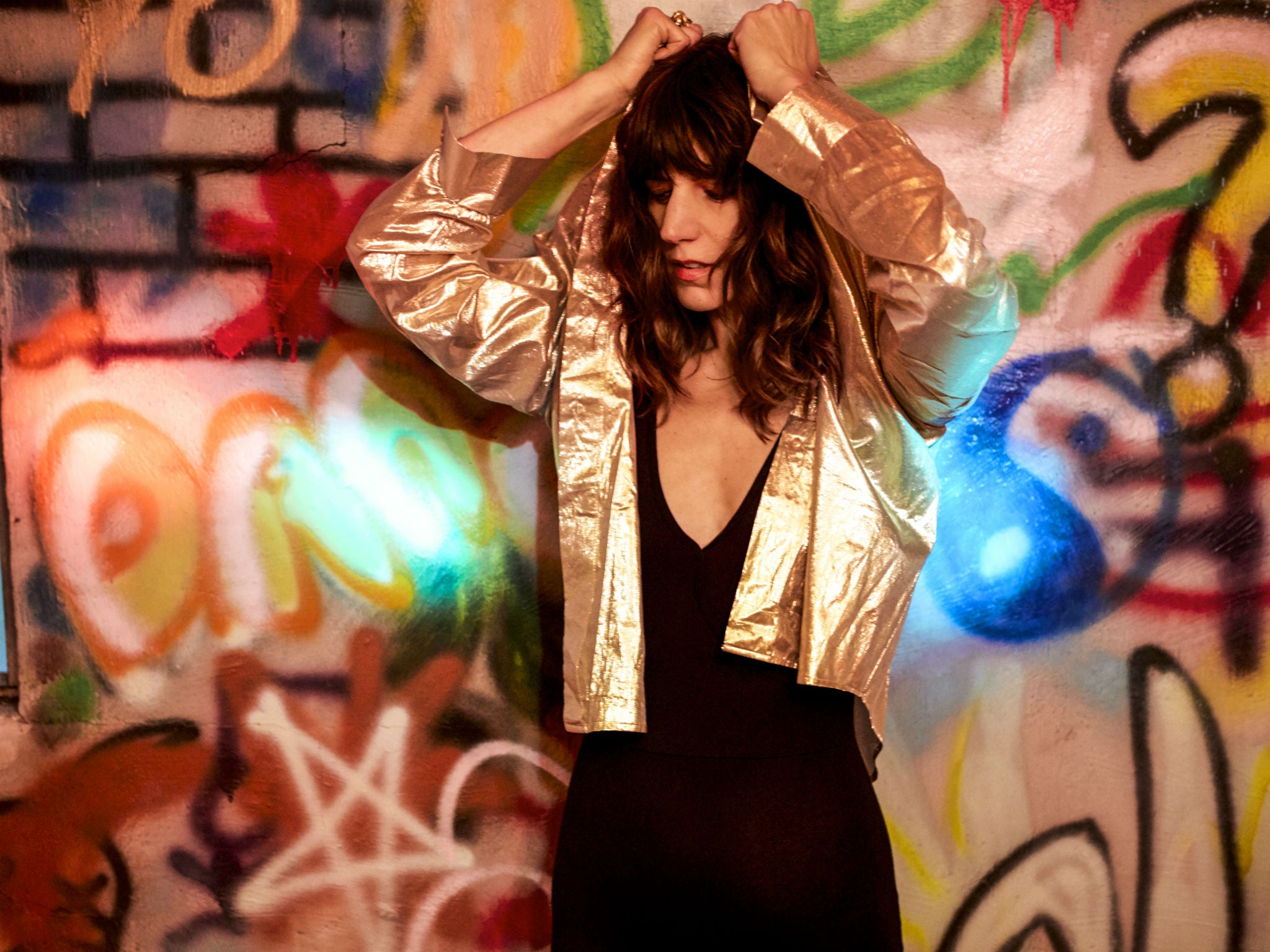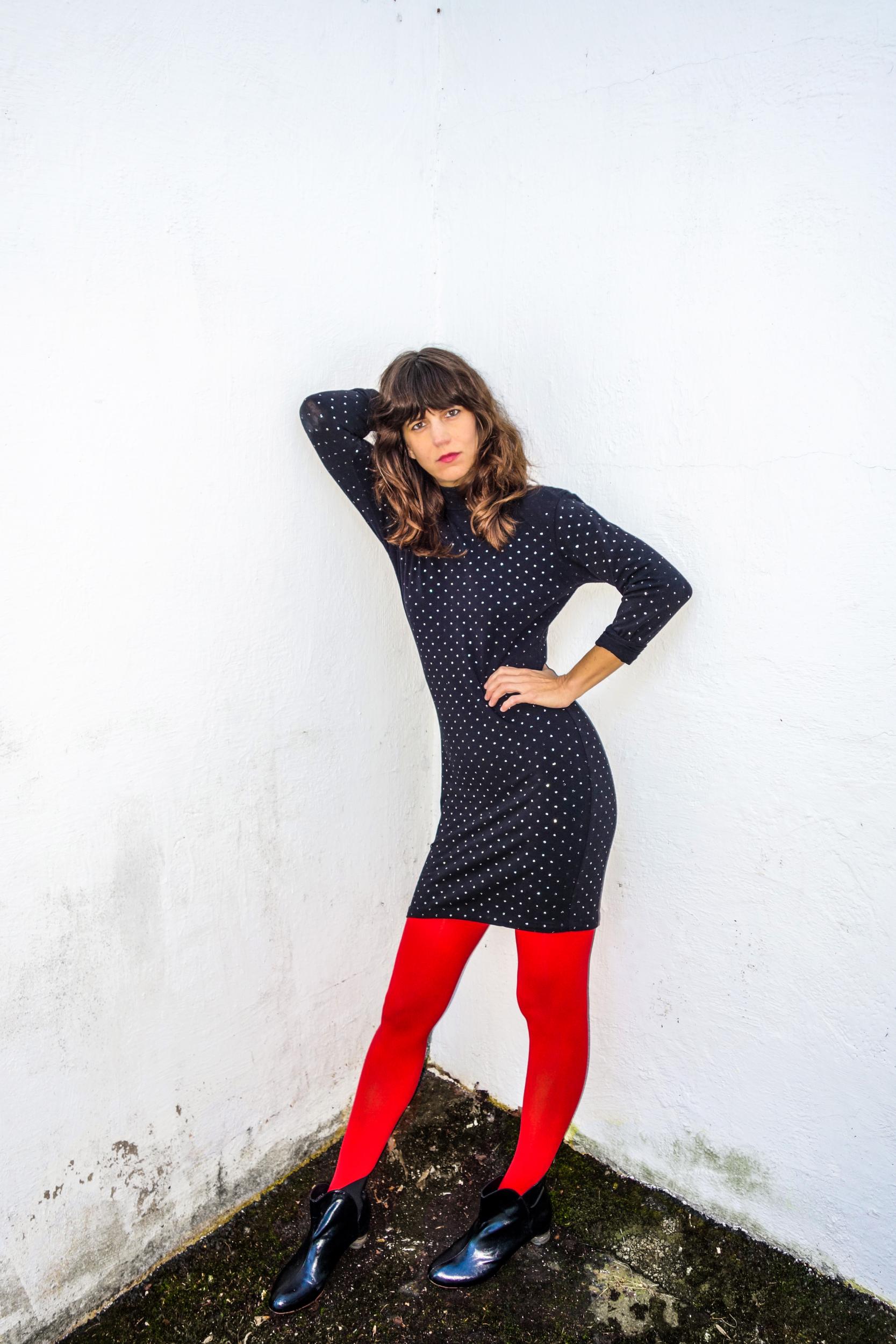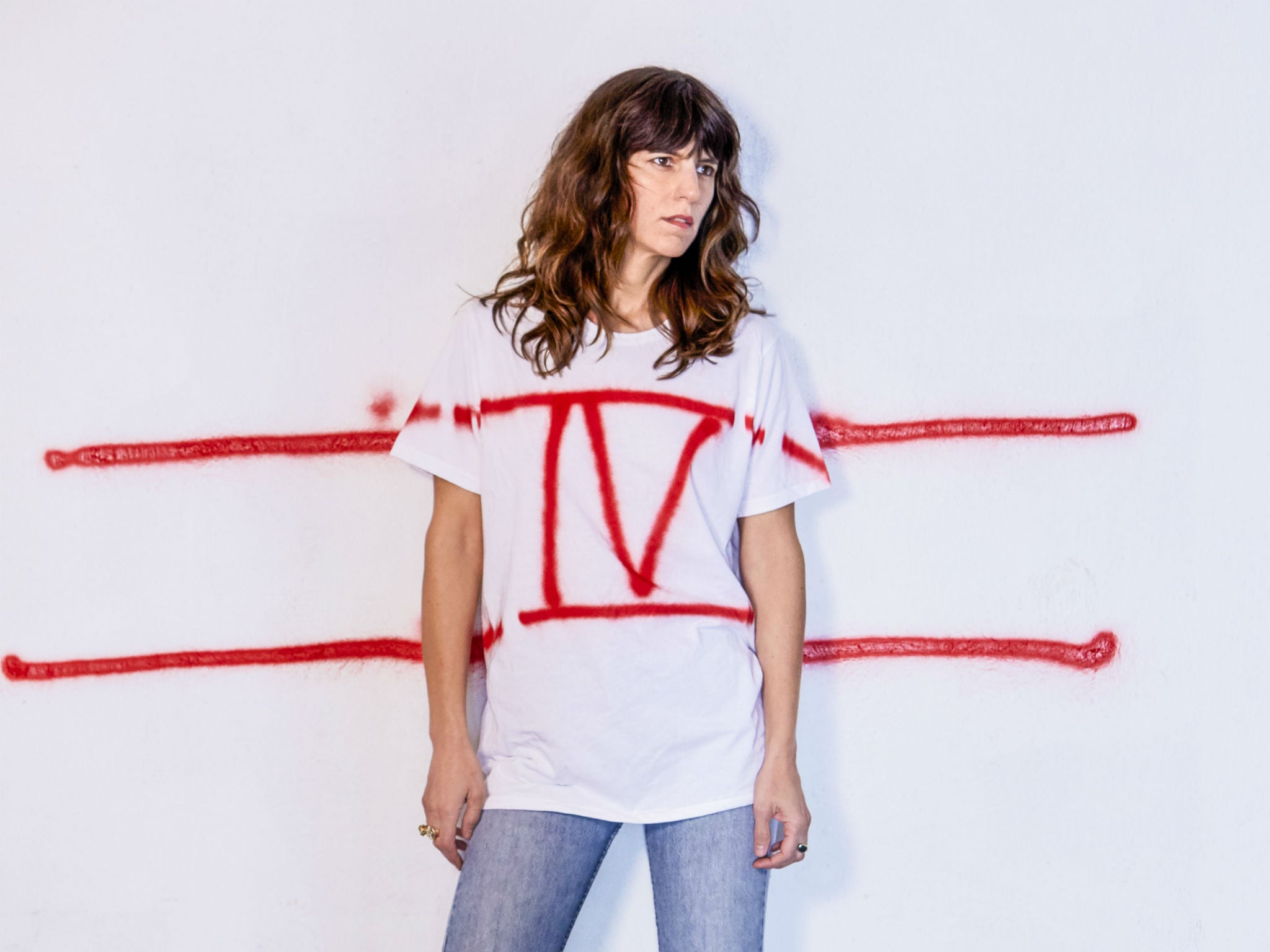Eleanor Friedberger on not working with her brother, the importance of lyrics, and being inspired by a Greek goth disco
The American singer discusses her new album ‘Rebound’, a career-best record crammed with catchy delights

Your support helps us to tell the story
From reproductive rights to climate change to Big Tech, The Independent is on the ground when the story is developing. Whether it's investigating the financials of Elon Musk's pro-Trump PAC or producing our latest documentary, 'The A Word', which shines a light on the American women fighting for reproductive rights, we know how important it is to parse out the facts from the messaging.
At such a critical moment in US history, we need reporters on the ground. Your donation allows us to keep sending journalists to speak to both sides of the story.
The Independent is trusted by Americans across the entire political spectrum. And unlike many other quality news outlets, we choose not to lock Americans out of our reporting and analysis with paywalls. We believe quality journalism should be available to everyone, paid for by those who can afford it.
Your support makes all the difference.“Originally I wanted to make something that sounded really harsh and angry,” admits the rather softly spoken Eleanor Friedberger. The US singer is sitting opposite me in a cosy west London pub, nursing a Guinness and talking about her excellent new record, Rebound, out this week.
“I really wanted it to sound disorientating and capture a feeling of alienation and I thought I could play guitar loudly with feedback – but it turns out I’m not really capable of making that kind of sound.”
No, the 41-year-old’s sound is much more refined. The electronica-infused Rebound is a perky, only occasionally melancholy delight, which embraces programmed drums, a Juno synthesiser and muted guitars, creating an atmospheric sonic landscape that recalls the work of Stereolab, Greek composer Lena Platonos and Yazoo (there’s even a splash of the Bee Gees in the mix).
The record is crammed with catchy, sometimes droll tracks, including the infectious, reggae-infused “Are We Good?” (on which she quips “Go to ZZ Top and lose my mind”), the standout “Make Me a Song”, and the single “In Between Stars” (which sees her singing “No, you didn’t love enough/And afterwards, you loved far too much”).

The New York State-based singer-songwriter spent her formative music years playing alongside her experimental, multi-instrumentalist brother, Matthew, in the Fiery Furnaces. The siblings released six albums, from 2003 to 2011, and attracted acclaim and approbation in equal measure, creating a challenging, cryptic, unsettling body of work that dabbled in prog and distortion.
Rebound is warmer, more accessible and (I feel) the best work Eleanor has been involved with. So does she miss working with her brother?
“No, is the fast answer,” she says, before laughing, which she does often. “Of course I do sometimes, but it’s a romantic or nostalgic sort of feeling of ‘this is the person who understands and knows me the best’, whom I have a shorthand with and we could make magic and I can’t do that with anyone else.
“But that’s also bullshit.”
“Practically speaking, I don’t miss him,” she continues. “It’s much easier to be in charge. But I would never rule it out [playing with Matt again]. It would be really cool to play music when we’re older, taking a leaf out of Sparks’ book and playing music together in our fifties and sixties. Two siblings playing at that age, that’ll be very interesting.”

During our hour-long chat Friedberger proves warm and blunt, amused and amusing, contrary and guarded – and describes herself as “very tough”.
Enjoy unlimited access to 100 million ad-free songs and podcasts with Amazon Music
Sign up now for a 30-day free trial
Enjoy unlimited access to 100 million ad-free songs and podcasts with Amazon Music
Sign up now for a 30-day free trial
She was born in 1976 to a Greek mother and an English father in Oak Park, Illinois. Her grandmother (”a powerful presence” who was a choir director), Olga Sarantos, and her Greek Orthodox origins partly inspired Rebound.
Another big inspiration was a night out at an Athens disco called Rebound, which opens at 3am on Saturday nights and specialises in 1980s-themed electronica – distorted takes on The Cure and Joy Division – and where all the punters do the “chicken dance”: a goth dance in which participants “slouchy strut”, back and forth in line, swinging their arms in time to the music.
“It’s not a joyful experience the chicken dance, it’s very serious and sombre,” emphasises Friedberger, “it’s classic goth dancing and definitely doesn’t involve dancing with partners.”
Rebound was also inspired by Nancy Milford’s biography, Savage Beauty, about the US poet Edna St Vincent Millay. Words matter to Friedberger.
Her former partners have included adroit lyricists Alex Kapranos, lead singer for Franz Ferdinand, and Spoon frontman Britt Daniel, and she’s unflinchingly passionate about the importance of lyrics.
“Even now I meet people who don’t listen to lyrics and they say, ‘I’m not into the lyrics’, and that’s the laziest thing to say,” she quietly fumes. “Then why don’t they listen to classical music or jazz you know, why are they listening to this rock’n’roll bullshit?”

“I think people use music as an escape and it’s not something they want to think about at all; they’re not even paying for it. Maybe if they bought it, they’d be invested to think about it. It’s literally falling off your phone, so why think about it?”
As a teenager, she listened to classic rock – the likes of the Stones, Neil Young (an artist that Friedberger would like to emulate, along with Joe Strummer, “the ultimate front person”) and Led Zeppelin. Later, she embraced American indie-rock bands such as Guided by Voices, Pavement and Royal Trux.
After graduating from the University of Texas in Austin, she spent a year in England (a country she has “mixed feelings about”; another refreshingly frank answer) in 1999 at the tail-end of Britpop, which was not a movement she was enthused by. She then spent 14 years living in New York City before being priced out and moving two hours north of Manhattan.
Moolah, as for so many contemporary artists, is definitely an issue, and her recent solo gig at Hackney’s intimate Moth Club (she would have loved to have brought her band with her, and promises to come back with them in autumn) only earned the singer 500 quid.
In a sane, just world Rebound should be a huge tipping point financially and critically for a solo artist who is absolutely at the top of her game. Maybe, much like Britt Daniel’s excellent Spoon, Friedberger will enjoy a late-career high. She gently admits seeing such turns “gives me hope, you know…”
“One of the problems is that there are so many more bands touring now, it’s really hard to make money through gigs because there’s so much competition. I think that’s in part because all the bands who were playing 20 years ago are still playing and that never happened in the past,” contends Friedberger.
“Maybe there should be a system where you get 15 years [of gigging] and then you’re out… or if you sell a certain amount of tickets, then you get to stay.”
Rebound is out 4 May
Join our commenting forum
Join thought-provoking conversations, follow other Independent readers and see their replies
Comments